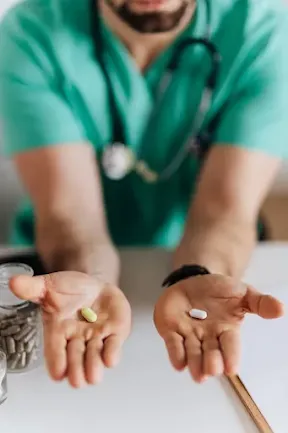Understanding and Managing Sexually Transmitted Infections (STIs): Causes, Symptoms, and Treatments"
Sexually transmitted infections, also known as sexually transmitted diseases, are several types of infections that are transmitted in sexual contact. These infections result from bacteria, viruses, parasites, and fungi. Here is an explanation of the main sexually transmitted diseases, their causes, symptoms, and treatments:
Chlamydia:
Cause: Chlamydia trachomatis.
Symptoms: It causes in women vaginal discharge and pelvis pain; in men, they include urethral discharge and testicular pain.
Treatment: Treated with antibiotics like azithromycin and doxycycline.
Gonorrhea:
Cause: Neisseria gonorrhoeae bacteria.
Symptoms: Urethral discharge, pelvic pain, and in men, testicular pain; in its advanced stages, there can be joint pain or skin rash.
Treatment: By antibiotic treatment, such as ceftriaxone and azithromycin.
Syphilis:
Cause: Treponema pallidum bacteria.
Symptoms: The initial stages manifest by painless sores called chancre. Later, a rash and fever appear; in advanced conditions, it leads to neurological problems and heart issues.
Treatment: It is usually treated with antibiotics like penicillin.
Herpes:
Cause: Herpes simplex virus (HSV).
Symptoms: While painful sores or blisters are noticed around genitals or the mouth, outbreaks recur.
Treatments: Antiviral medications like Acyclovir, Valacyclovir, Famcyclovir are used for the management of outbreaks.
HIV/AIDS:
Cause: Human Immunodeficiency Virus (HIV).
Symptoms: Flu-like symptoms primarily present in the early infection. The untreated will progress to a weak immune system, which predispose to opportunistic infections and cancers.
Treatment: Controlled with antiretroviral therapy, no permanent cure yet.
HPV—Human Papillomavirus:
Cause: HPV virus
Symptoms: Most of the cases are asymptomatic some kinds of this virus may cause cervical cancer, genital warts, and throat cancer
Treatment: Available vaccine to reduce infection possibilities and cancers related to this virus, treatments for warts available.
Safe sexual practices, such as correct condom use, monogamous relationships, and regular screenings, could help prevent STDs/STIs. Any person who feels he or she may be infected with a certain STI should report to the healthcare provider during the earliest stages of suspicion for proper diagnosis and treatment.





